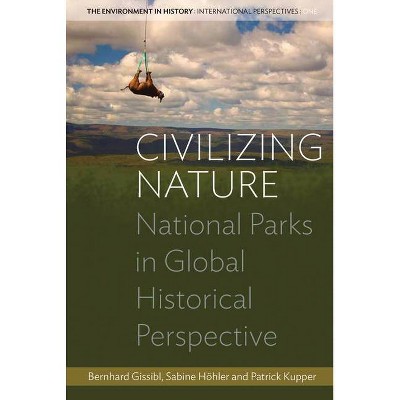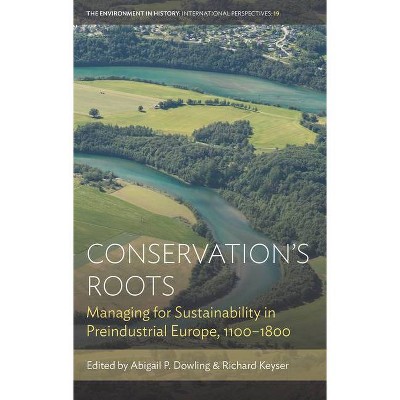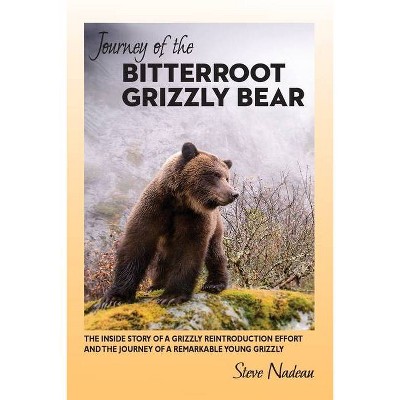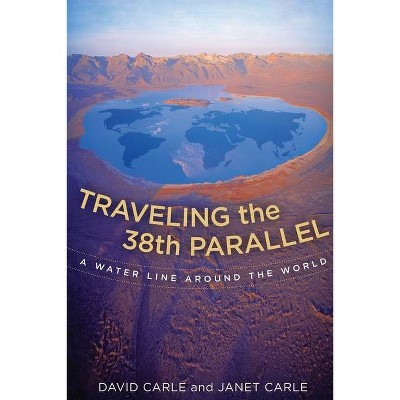Civilizing Nature - (Environment in History: International Perspectives) by Bernhard Gissibl & Sabine Höhler & Patrick Kupper (Hardcover)

Similar Products
Products of same category from the store
AllProduct info
<p/><br></br><p><b> Book Synopsis </b></p></br></br><p> National parks are one of the most important and successful institutions in global environmentalism. Since their first designation in the United States in the 1860s and 1870s they have become a global phenomenon. The development of these ecological and political systems cannot be understood as a simple reaction to mounting environmental problems, nor can it be explained by the spread of environmental sensibilities. Shifting the focus from the usual emphasis on national parks in the United States, this volume adopts an historical and transnational perspective on the global geography of protected areas and its changes over time. It focuses especially on the actors, networks, mechanisms, arenas, and institutions responsible for the global spread of the national park and the associated utilization and mobilization of asymmetrical relationships of power and knowledge, contributing to scholarly discussions of globalization and the emergence of global environmental institutions and governance.</p><p/><br></br><p><b> Review Quotes </b></p></br></br><br><p> "<em>This book makes a unique contribution to the conservation literature by enhancing one's understanding and appreciation of the cultural meaning of nature conservation through the lens of national park development. [...] Highly recommended."</em><strong> - Choice</strong></p> <p> <em>"The book meets its aim of moving conservation scholarship in a new direction by providing analysis of the 'national'' (and not just the 'park') part of national parks."</em> <strong>- The Public Historian</strong></p> <p> <em>"The essays in </em>Civilizing Nature<em> are generally very good in outlining and analyzing institutions, governments, and the roles of NGOs, scientists, and stakeholders within and regarding national parks around the globe."</em> <strong>- Journal of Tourism History</strong></p> <p> <em>"This volume impresses with a well written, fascinating and remarkably multi-facetted story about one of the globally most successful nature conservation policies. It shows clearly that the future of environmental and nature conservation work lies in comparative global history that leaves enough room for local specificities and actors, without losing sight of larger processes."</em><strong> - Sehepunkte</strong></p> <p> <em>"Civilizing Nature is a seminal work of outstanding scholars in their fields...a critically important addition to academic library Environmental Studies."</em><strong> - Midwest Book Review</strong></p> <p> <em>"For those fascinated by the notion and practice of national parks, it is probably best to start with the abstracts to the thirteen chapters...[that] convey the truly global scope of the present volume... The editors are to be congratulated for their strong cast of contributors and the'fine essays that represent the fruits of cutting-edge research."</em><strong> - Environment and History</strong></p> <p> <em>"[This volume] brings together an appealing array of scholars to describe and discuss how the term 'national park' has been perceived and used worldwide. While taking readers on a whirlwind tour of places--20-odd parks in more than 16 countries in 13 chapters--it explores ideas of 'territorialization' 'nationalism, ' and 'globalization' in an ecological milieu and, in turn, puts 'wilderness, ' 'nature, ' and 'preservation' in much-needed political and cultural context...Overall, the work leaves cultural geographers informed and inspired to continue studying and contributing to discussions of reservation, politics, ecology, and history in the context of national parks."</em><strong> - Journal of Cultural Geography</strong></p> <p> <em>With an intellectual coherence often missing in the revised proceedings of conferences, Civilizing Nature is a path‐breaking work in its field of comparative national park history. Both editors and contributors must be commended on the outcome. It is also a valuable contribution to environmental history more broadly and a useful addition to the study of twentieth‐century global history.</em><strong> - Ian Tyrrell, Environment and Nature in New Zealand</strong></p> <p> "<em>The editors are to be congratulated on having put together such a strong cast of contributors and on having extracted such fine essays that represent the fruits of cutting-edge research on national park history. I feel strongly that the future of environmental history lies in global and comparative studies of this sort and this volume offers a model in being both genuinely global and genuinely comparative."</em><strong> - Peter Coates</strong>, University of Bristol</p> <p> "<em>This book is very worthwhile, and likely to be of interest to readers interesting in conservation and environmental studies more widely. The way that the manuscript is organised into themes is very sensible and helps the reader draw some of the connections between apparently disparate cases."</em><strong> - Rosaleen Duffy</strong>, University of Manchester</p><br>
Price History
Price Archive shows prices from various stores, lets you see history and find the cheapest. There is no actual sale on the website. For all support, inquiry and suggestion messagescommunication@pricearchive.us




















